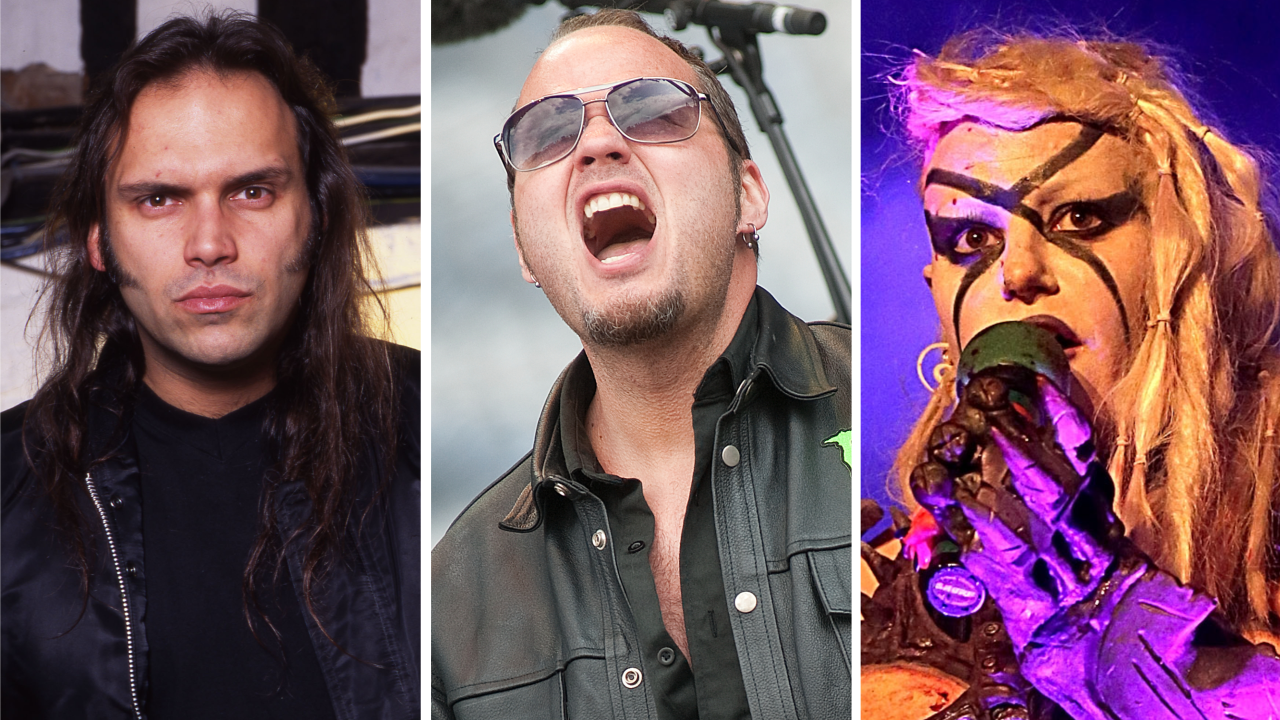In life, sometimes you’ve got to kiss a few frogs. And being in a band is exactly the same, musically speaking. The vocalist is the literal voice of your outfit, so the pressure is on to make the right call. But when your decision will either have you and your cohorts go down in history or down the toilet, we can’t blame some bands for making some bewildering lineup shifts. So, here are 10 times when replacement singers didn’t quite live up to their predecessors.

Blaze Bayley – Iron Maiden
While Iron Maiden made the right call switching out Paul Di’Anno, thus allowing Bruce Dickinson to fulfil his destiny of metal-icon-cum-fencer, their decision to take on Blaze Bayley for two albums was perhaps questionable; The X Factor and Virtual XI would serve as Maiden’s worst-performing release since 1981, despite boasting some genuinely great compositions. Eventually, Bruce would return alongside guitarist Adrian Smith to usher in Maiden's second golden age. Blaze's time in the band remains honoured courtesy of songs from his era often reappearing in setlists, while the man himself has enjoyed a fine career since.
Gary Cherone – Van Halen
Extreme’s Gary Cherone is a good singer in his own right – a song like More Than Words doesn’t become a classic if your pipes are naff, you know? However, his time in Van Halen was a definite low point. From the off, he felt jammed in, putting on his best Sammy Hagar impression rather than fully being himself. We also have Gary Cherone to thank for the nightmare that is Van Halen III. Thanks, Gary.
John Corabi – Mötley Crüe
Peanut butter and jelly, macaroni and cheese, Mötley Crüe and Vince Neil – they all just work together. After his time in the Crüe, John Corabi himself even admitted he could never successfully replace Vince Neil, asserting he’d never be the real “voice of the band”. And the fans attested to this when his debut with the glam metal hellraisers, 1994’s Mötley Crüe, served as the first Crüe record to not go platinum.
Tim “Ripper” Owens – Judas Priest
Ripper Owens lived out a total teenage fantasy when he went from fronting a Judas Priest cover band to being cherry-picked to play with the band themselves. Unfortunately, therein lies the problem: Owens’ whole schtick was playing the role of Rob Halford, but they were boots no one would ever be able to fill. He certainly gave it his all, but Halford would eventually return to wide acclaim. Still, having since sung with everyone from Iced Earth to KK's Priest, Ripper remains a much appreciated staple of the metal scene.
Ian Gillan – Black Sabbath
Black Sabbath have had their fair share of vocalist switch-ups, but Deep Purple’s Ian Gillan has personally labelled himself as “the worst singer Black Sabbath ever had”. While Gillan is a superb frontman, we can see what he means: his vocals don’t quite match up with Black Sabbath’s typical darkness. Considering Born Again was originally set to be released under a totally different project name, even the band consider it a detour.
Dan Nelson – Anthrax
When the rest of the band kick you out, it’s fair to say you’ve done a pretty shoddy job. While live recordings suggest that Dan Nelson’s time in Anthrax wasn’t too awful, he never even got to showcase his talents on record, only being credited as a co-writer on 2011’s Worship Music. Anthrax instead opted to reunite with Joey Belladonna yet again – a pretty strong move, if you ask us.
Denis Stoff – Asking Alexandria
People often forget Denis Stoff’s 18-month stint in Asking Alexandria, and that’s because he never made that much of an impact. While 2016’s The Black serves up some strong vocals, it’s a definite outlier in the band’s back-catalogue. When the ever-beloved Danny Worsnop reunited with the band after his incredibly brief absence, he insisted that Stoff was merely “keeping [his] seat warm” – and it certainly feels that way.
Mark Huff – Quiet Riot
Quiet Riot didn’t treat Mark Huff too fairly, apparently letting him go through a statement rather than face-to-face. But, it seems Huff simply wasn’t the right fit for the band. It was a tough challenge to take on from the start, Huff serving as one of many attempts to find a new vocalist following Kevin DuBrow’s death in 2007, and the ruby slipper didn’t fit until finding James Durbin in 2017.
Kim Dylla (Vulvatron) – Gwar
Despite all appearances, Gwar are not actually horned mythological scumdogs. Kim Dylla had the opportunity to don some prosthetics and join the gang – but, honestly, blink and you’ll miss it. While Dylla went pretty hard in her Gwar era, even breaking a rib onstage and continuing to rock out, the band didn’t deem her a worthy addition after the death of Dave Brockie, kicking her out within a fraction of a second.
Jason Jones – Drowning Pool
Attempting to fill in for Dave Williams after his tragic death in 2002 would have been an intimidating task for just about anyone, but Jason Jones truly did not fit the bill. Trying to win over fans is never going to be easy if you go into Drowning Pool already hating the songs – Jones has gone on record stating that he “wasn’t really happy with the music”, as well as not really gelling on with his bandmates.








